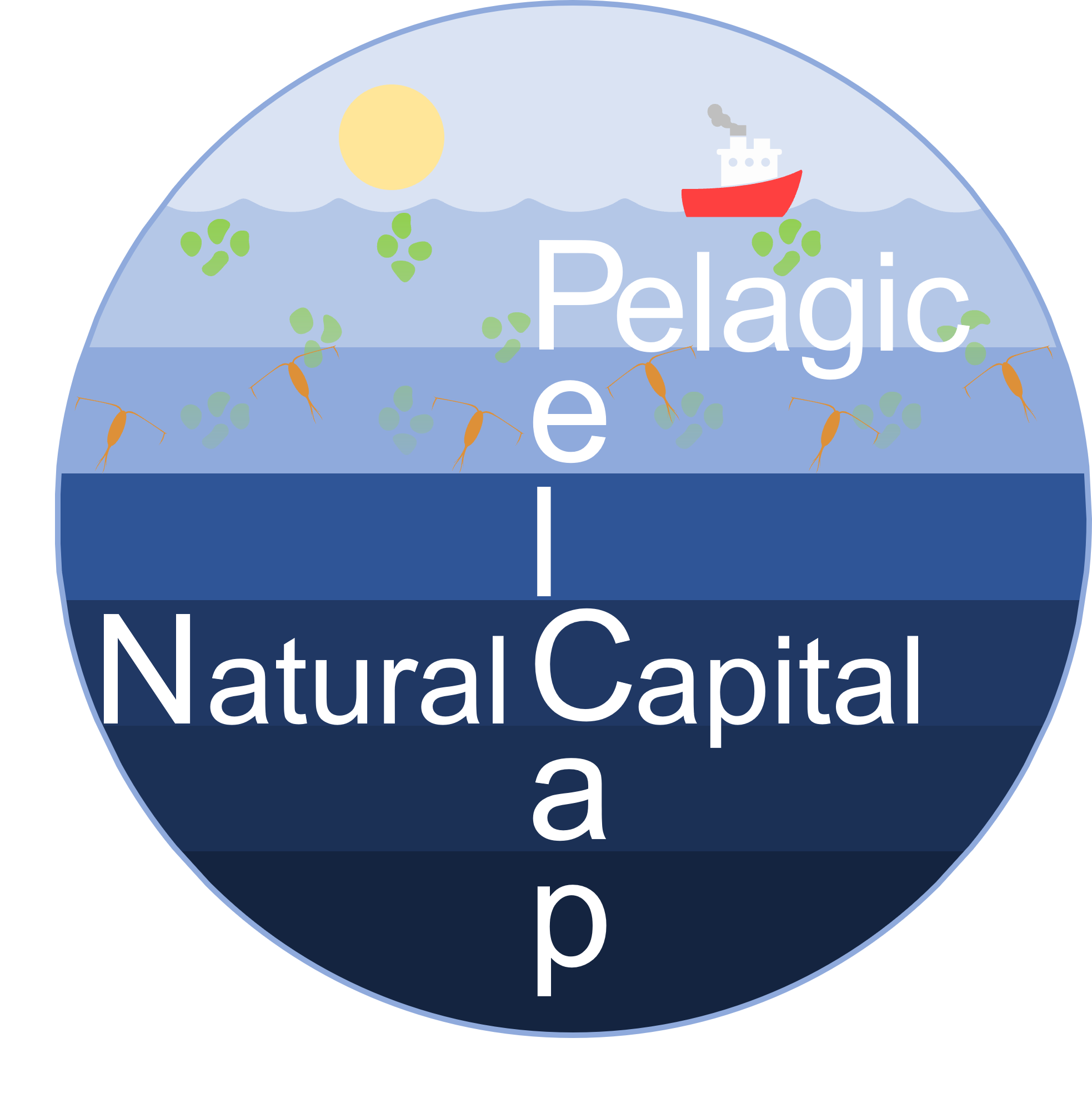PelCap - Pelagic Natural Capital
The Pelagic Natural Capital project or “PelCap”, draws together 12 partner institutions from across the UK to improve our pelagic knowledge and evidence base by furthering the delivery of a comprehensive monitoring program to provide a more holistic view of pelagic food webs; to optimise this evidence, by making the data accessible and useable; and to provide a demonstration of the use of this evidence in supporting better decision-making through a natural capital approach.
This project was funded by the Department for Environment, Food and Rural Affairs (Defra) as part of the marine arm of the Natural Capital and Ecosystem Assessment (NCEA) programme. The marine NCEA programme is leading the way in supporting Government ambition to integrate natural capital approaches into decision making for the marine environment. Find out more at https://www.gov.uk/government/publications/natural-capital-and-ecosystem-assessment-programme.
Submissions from 2024
Mind the Gap – The need to continue long-term plankton monitoring, Matt Holland, Angus Atkinson, Mike Best, Eileen Bresnan, Michelle Devlin, David Johns, Margarita Machairopoulou, Sophie Pitois, James Scott, Rowena Stern, Callum Whyte, Claire Widdicombe, and Abigail McQuatters-Gollop
PELCAP: Natural Capital in Plankton & Pelagic Habitats, Paul Tett, Eileen Bresnan, Matthew Faith, Matt Holland, and Mike Best
Plenty more fish in the sea? Counting the cost of climate change on marine Natural Capital, Angus Atkinson, Matt Holland, Abigail McQuatters-Gollop, Michelle Devlin, M Best, Paul Tett, and Matthew Faith
The many scales of pelagic habitats, Abigail McQuatters-Gollop, Rowena Stern, Angus Atkinson, Michael Best, Eileen Bresnan, Veronique Creach, Michelle Devlin, Matt Holland, Clare Ostle, Katrin Schmidt, Lawrence Sheppard, Glen Tarran, E. Malcolm S. Woodward, and Paul Tett


